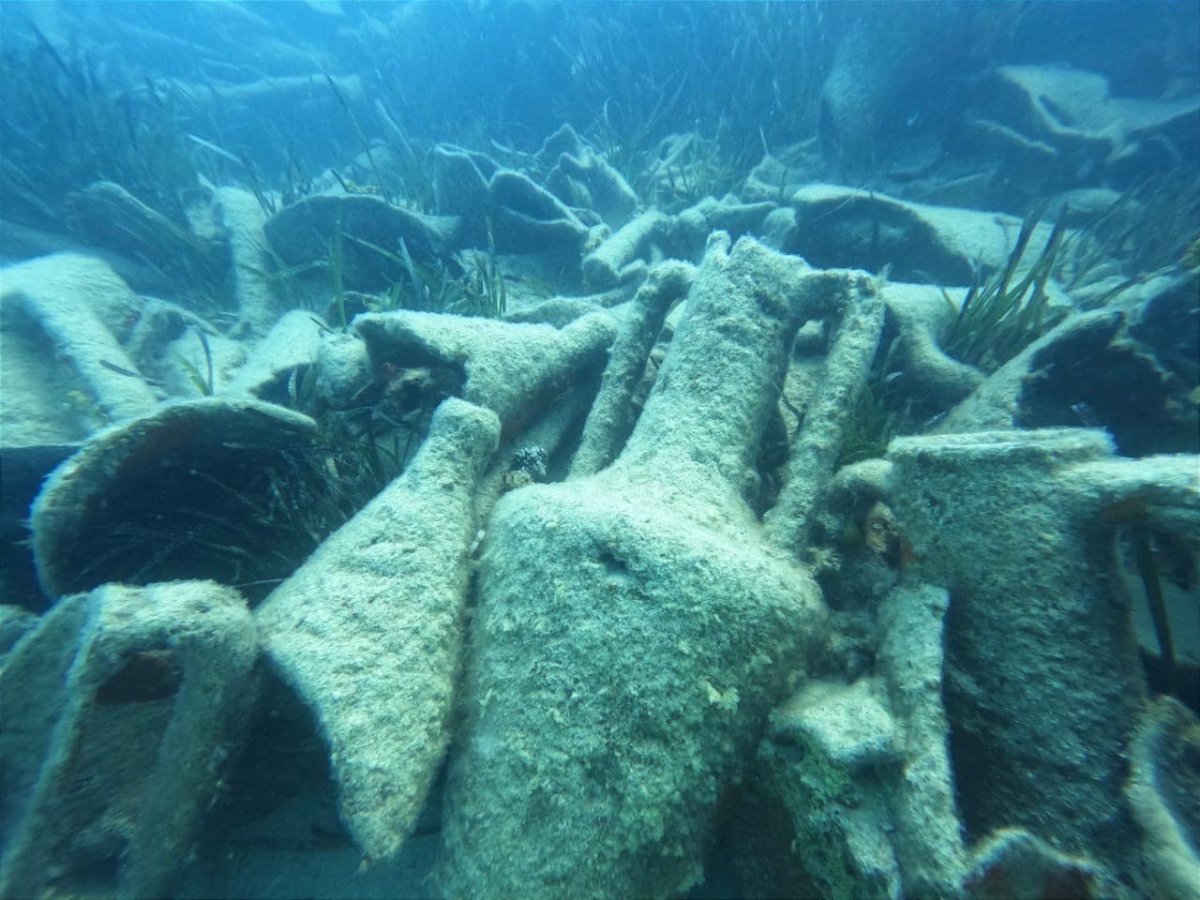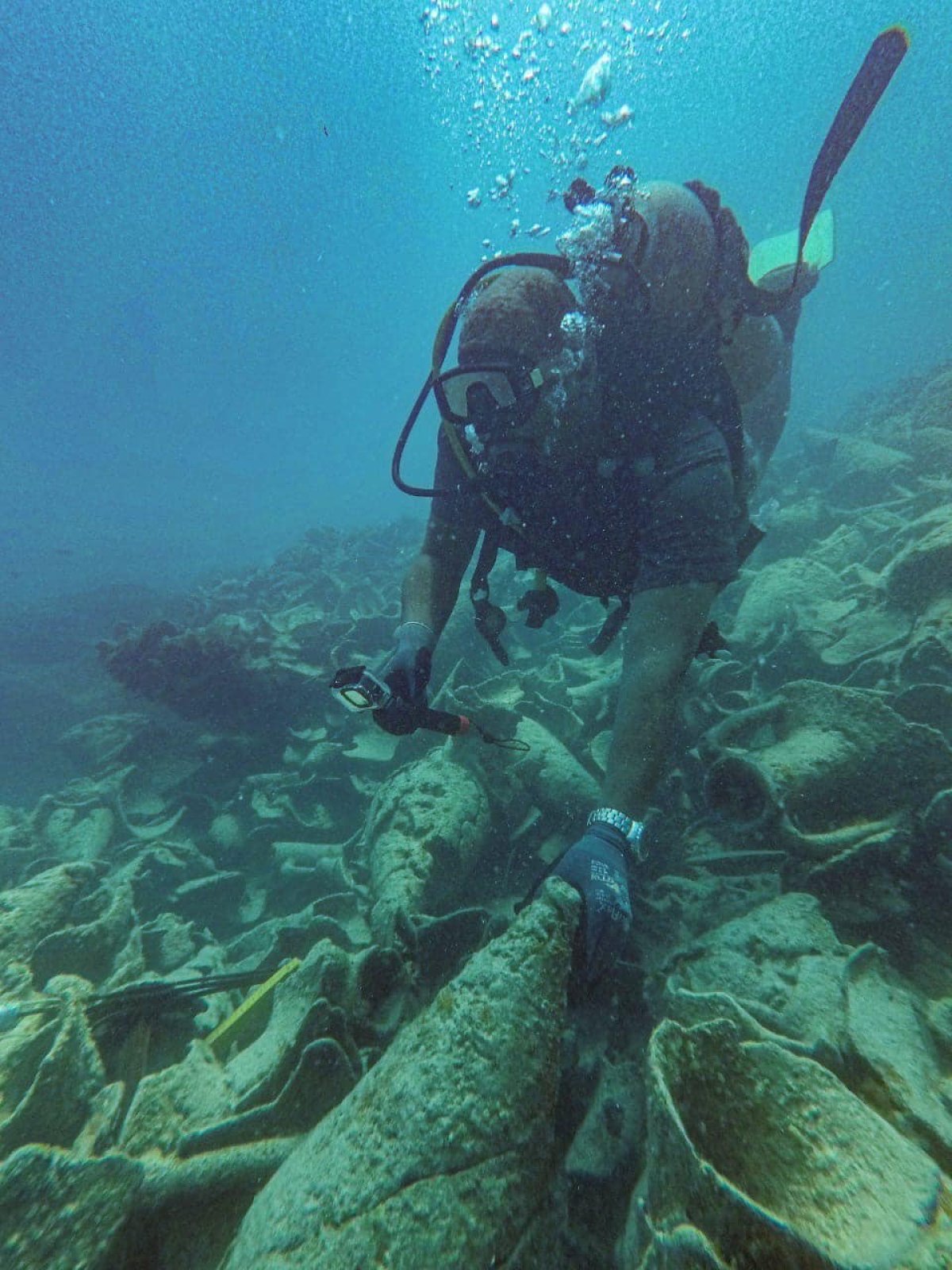The remains of a 2,000-year-old ship loaded with large jugs known as amphorae, thought to have contained wine was discovered off the coast of Egypt.
Archaeologists discovered the shipwreck and its treasures 2,132 feet below the surface of the Mediterranean Sea, near the city of El Alamein, Egypt's Ministry of Tourism and Antiquities said in a statement. It was initially discovered by a marine survey company doing survey work in the area.
The shipwreck dates back more than 2,000 years to the third century B.C. and a large number of amphorae were found near it. Closer inspection of the jugs found them to have come from the Greek island of Rhodes and the statement indicates that they had been used to store wine.
During the third century B.C., the area around El Alamein was home to many commercial ports, where ships would arrive bearing cargo. The recently discovered shipwreck provides archaeologists with more insight into commerce and economic activity in Egypt at the time the ship sank, the Ministry of Tourism and Antiquities said in its statement.

The discovery offers new insight into the commercial routes between Egypt and other areas of the Mediterranean. An abundance of food and drink products were traded between Southern Europe and North Africa including wine, olives and grains.
Hundreds of other pottery items were found among the wreckage, which lies 650 meters (about half a mile) offshore, the ministry said. The jugs were found on a sunken island next to the shipwreck, suggesting that the vessel sank after its hull hit the island.
Mostafa Waziri, Secretary-General of the Supreme Council of Antiquities, who worked on the project, said in a statement that the finds highlight how significant Egypt's coastal ports were to its economy.
Teams are continuing investigations of the shipwreck to determine more about its historical significance.

New archeological finds are being discovered on shipwrecks all the time.
In July, perfectly preserved glassware was found on board the wreckage of a 2,000-year-old Roman shipwreck lying 1,148 feet below the ocean's surface.
The shipwreck known as the Capo Corso 2 was discovered between the French peninsula of Cap Corse and the Island of Capraia in Italy.
An excavation of the wreck took place in early July when archaeologists found an abundance of ancient glassware, a press release from Italy's National Superintendency for Underwater Cultural Heritage said at the time, which conducted the mission alongside France's Department of Archaeological Research.
Do you have a tip on a science story that Newsweek should be covering? Do you have a question about shipwrecks? Let us know via science@newsweek.com.
Uncommon Knowledge
Newsweek is committed to challenging conventional wisdom and finding connections in the search for common ground.
Newsweek is committed to challenging conventional wisdom and finding connections in the search for common ground.
About the writer
Robyn White is a Newsweek Nature Reporter based in London, UK. Her focus is reporting on wildlife, science and the ... Read more
To read how Newsweek uses AI as a newsroom tool, Click here.








